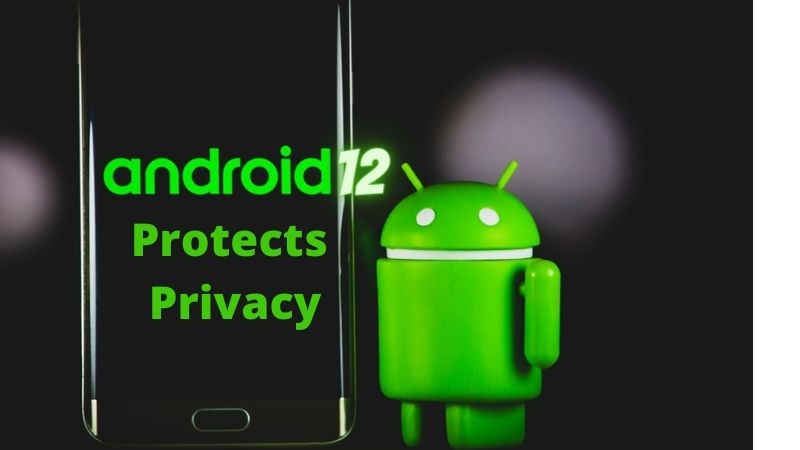The latest update of Android software by Google this year is focused on security, which is why this IT giant has put in the foreground the ability to control the data that Android 12 gives users.
The update is already available in beta and will be officially unveiled in a few months, and then newer than the three billion Android-powered devices will be able to be upgraded to that Google software.
The company, which unveiled small changes and larger features at its developer conference, has released add-ons, some of which are very similar to features already available in Apple’s iOS, while others preserve user privacy in completely new ways.
Control What Apps Access With “Privacy Dashboard”
In Android 12 You Found “Privacy Dashboard” that show you which apps have utilized potentially sensitive permissions in last 24 hours. The control panel breaks down the activities of applications by categories – such as “Location”, “Camera”, and “Microphone”, and then shows you which applications have accessed these mechanisms.
Google will also require developers to submit extra details on how they used the access at the time. And through the control panel, you can also adjust or revoke application permissions. “Privacy Dashboard” gives more insight into how applications work in the background, especially because it includes information that tells you, not only whether there was access to data about your location or your microphone, but also at what time and for how long.
Also, Android 12 introduces a green indicator light in the upper right corner of any screen, which turns on if you use your smartphone’s microphone or camera. Last year, Apple released iOS 14, which included a similar functionality. In Android, however, simply dragging the notification down opens more details about which app uses the microphone or camera and why, and from there, you have easy access to revoke the license if you want.
Disable Spying In Two Clicks in “Quick Settings”
Google also adds two controls to Android’s “Quick Settings” to completely turn off access to the camera or access to the microphone for all apps.
According to the company, clicking on one or both buttons is the software equivalent of placing a sticker over a webcam. This does not revoke the application’s license but simply makes it impossible to read information from the camera’s sensor. Most crucially, the operating system disables the camera and microphone, so programs have no way of knowing when they are turned on. Malicious programs can even record when the camera and microphone are turned off and hunt for other ways to monitor potentially sensitive behaviors if the camera and microphone are turned off.
Only Be Able to Share the App’s Approximate Position
When it comes to sharing permission information with apps, Android currently allows you to give location data once rather than committing to sending it anytime the app requests it.
Android 12 goes, in fact, a step further by adding the ability to share only approximate positions with the app. This way you don’t have to tell the weather apps where you live or work to get a forecast in your neighborhood. This new option will come in handy, for example, to those who like gambling on the Internet. Most online casinos require player location checks as a legal requirement for wagering. Sometimes, punters come across the unavailability to verify their location messages, so once they fix the problem, they certainly don’t want this issue to happen again. Fixing casino geolocation issues, which usually emerge by choosing an operator that is not among the trusted ones (and you can find trusted ones here), and using the latest feature of Android 12 we are talking about will make this pastime stress-free.
Last year, Apple’s mobile operating system, iOS 14, added a similar capability. As with sharing your current location, Android 12 also provide three options for sharing your device’s approximate current location with apps: “While I’m using the app”, “Only this time”, or “Don’t allow”.
“App Hibernate” to Keep the App on Your Phone but Under Control
The Android team continues to introduce its “Automatic License Reset” program, which was first announced for Android 11. The idea is to reset the licenses for apps you have not used in a long time, so they don’t stay for access they don’t need. If you later want to revoke their permissions, you can do so at any time.
Android 12 also extends this idea with a new feature called “App Hibernate”. In addition to removing permissions from applications you have not used in a long time, this additional step will completely stop running apps in the background, remove all temporary and optimizing the files that the app stores on your mobile device, and remove the ability for the app to send notifications. If you click on “App Hibernate”, it will come to life and re-establish its presence while you are using it, but application permissions are not automatically restored.
